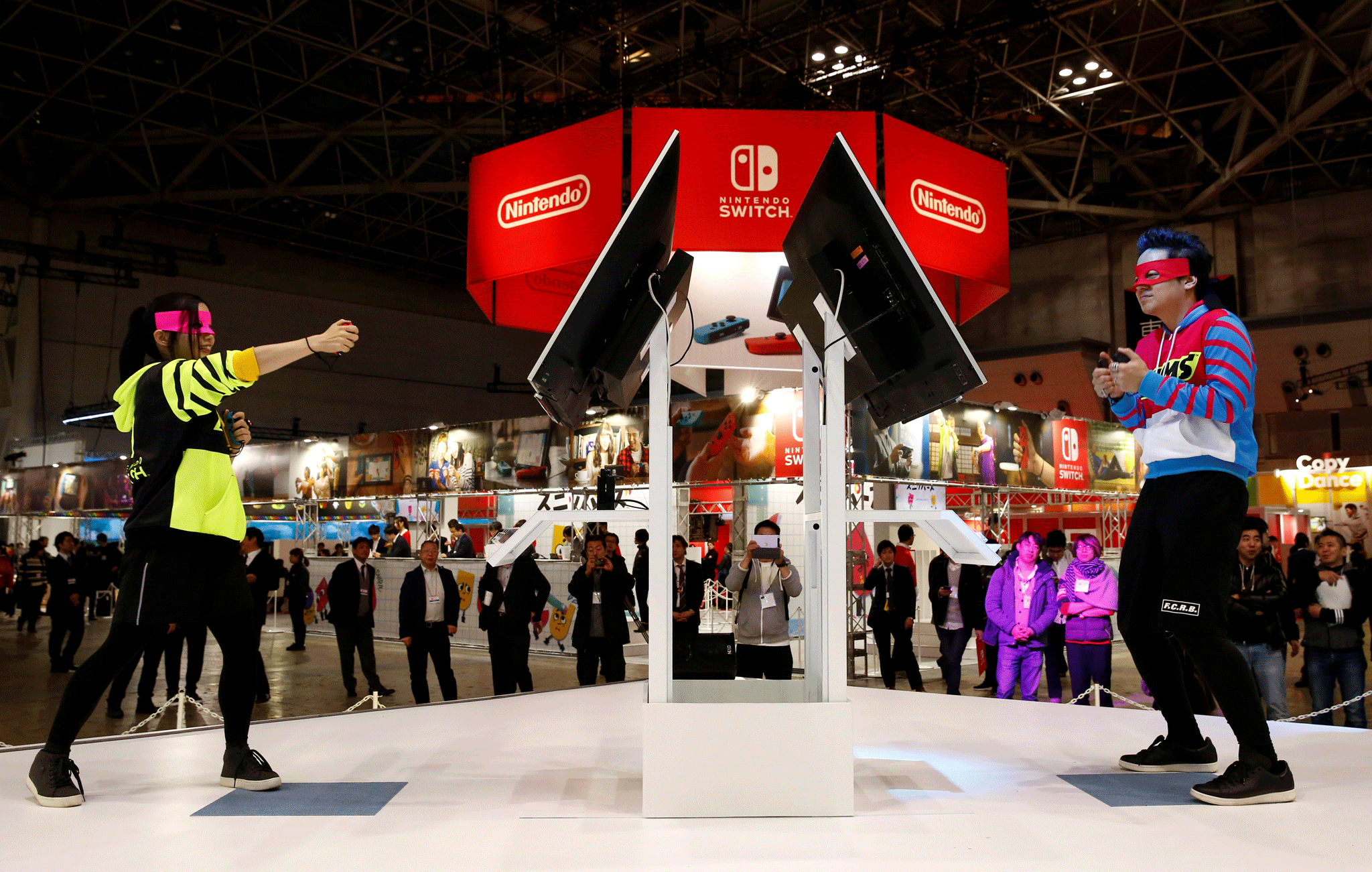Nintendo's new Switch turns off gamers and the markets
The entry price is high for casual gamers who’ve moved on to tablets, while the peripherals are ruinous

Your support helps us to tell the story
From reproductive rights to climate change to Big Tech, The Independent is on the ground when the story is developing. Whether it's investigating the financials of Elon Musk's pro-Trump PAC or producing our latest documentary, 'The A Word', which shines a light on the American women fighting for reproductive rights, we know how important it is to parse out the facts from the messaging.
At such a critical moment in US history, we need reporters on the ground. Your donation allows us to keep sending journalists to speak to both sides of the story.
The Independent is trusted by Americans across the entire political spectrum. And unlike many other quality news outlets, we choose not to lock Americans out of our reporting and analysis with paywalls. We believe quality journalism should be available to everyone, paid for by those who can afford it.
Your support makes all the difference.Ouch-io, said Mario. The reaction to Nintendo’s new “Switch” has left the company’s share price looking like its iconic character after being hit by one of Donkey Kong’s barrels.
The problem is the price. The Switch will retail at £279.99 in the UK, $299.99 in the US. That in itself is pushing it if Nintendo wants to win back the families and casual gamers who made the original Wii a success but whose move over to mobile phone and tablet gaming killed its successor, the Wii U.
But then there are the peripherals, which you might need to make this particular piece of kit really sing. A pro controller, which is like a traditional console controller, comes in at $69.99 (£57.50).
For the uninitiated, that is at least £20 more expensive than what Microsoft will charge you for an Xbox One controller.
Additional Joy-Con controllers that you’ll need to facilitate playing with friends are even more expensive at $79.99, while a spare dock to use the Switch with different TVs or monitors around the house (another USP) is a ruinous $89.99.
Some of the gaming blogs have been foaming at the mouth in response, and no wonder. Casual gamers, which Nintendo needs to win back, are more likely to shrug their shoulders and move on to the app store.
The markets responded by crushing the shares, amid fears that the Switch has little chance of making any impression on the duopoly of Microsoft’s X Box and Sony’s Playstation.
It is innovative in that you can play it on a TV at home or take it out and use it via a tablet-style screen.
But this makes it either a halfway house between a traditional console and a game-friendly mobile phone with a big screen (or a tablet). Or it makes it something new that will need to create a new market for itself. No easy task, that.
Traditionally, console makers have worked by pricing high at first, in the hope of drawing in hardcore gamers early with the quality of the content over their earlier machines, to recoup development costs.
The price then falls, and the mass market comes in for the Black Friday bundles (guilty as charged with my family’s Xbox One) with the real money being made through games and subscriptions.
Nintendo, with its cutesy characters and its family friendly image, has struggled with that model because it has never managed to get much traction with serious gamers. They've already been giving the thumbs down to its high priced peripherals so it looks as if they're still not playing.
As for families, I’m struggling to see them giving up their tablets for this at the cost.
You wonder if Nintendo is already taking a considerable hit with the console at $300 or £280 and is trying to make some money back with the pricey peripherals. But that’s a strange strategy if it wants to establish a foothold for the Switch.
It would surely be worth taking a bigger up front penalty to at least establish the device because the danger is that it will disappear without a trace like the Wii U. The consequences of that for this one time icon of the gaming industry would be ugly.
What might help is some can’t miss content to generate excitement. Nintendo needs something to generate the same sort of buzz as, say, Pokémon GO.
That, of course, was developed by someone else.
Join our commenting forum
Join thought-provoking conversations, follow other Independent readers and see their replies
Comments